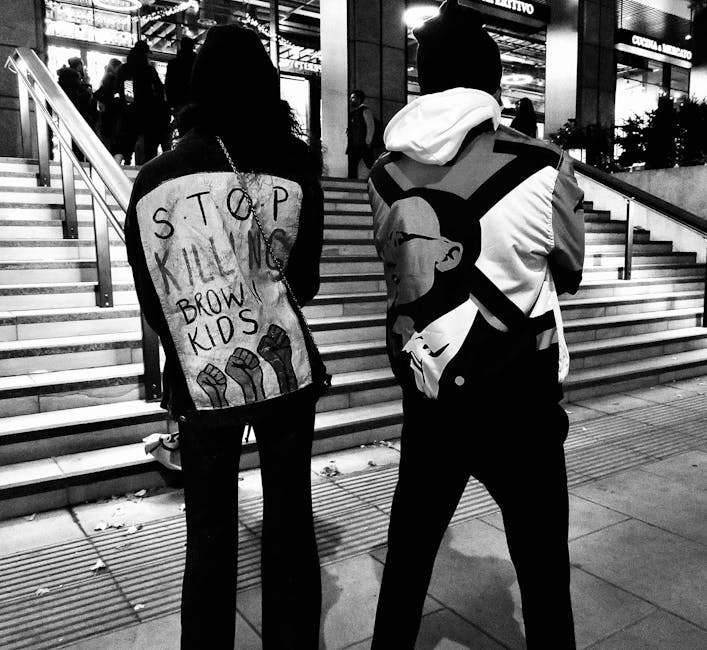Table of Contents
Reckon I’ve been kicking around this whole content game for a good twenty years, maybe more. Seen things, heard things, the lot. Most times, some bright spark comes to me, wants to write about the latest widget or some daft marketing buzzword. But every so often, something proper interesting lands on the desk. This time? Fanny Brice. Yeah, that Fanny Brice. People usually only know her from the Barbra Streisand flick, don’t they? Or maybe the recent Broadway revival. It’s a shame, that. It really is. Like boiling down a whole life to one famous snapshot.
She was something else, you know. A real force of nature, long before anyone started slinging around terms like ‘icon’ willy-nilly. First time I properly dug into her story, not just the highlights reel, I was taken aback. This woman, Fanny Borach her birth name was, out of New York City, East Side. She wasn’t born with the silver spoon, far from it. Started young, like a lot of them did back then. Vaudeville stages, rough and ready, no fancy lights or choreographed TikTok dances. Just talent. Raw, undeniable talent. What’s that old saying? You either got it or you don’t. She had it in spades. She was just built different, you see.
The Original Funny Girl, But Not How You Think
People ask me, “Was Fanny Brice exactly like Barbra Streisand?” And I usually just let out a bit of a sigh. Bless their hearts, they mean well. But no, bless ’em, she wasn’t. Streisand was a phenomenal interpreter, made the role her own, no doubt. Made it bigger than Ben-Hur for a whole new generation. But Fanny? She was of her time. A different animal altogether. She wasn’t about hitting those big, soaring notes in quite the same way. She was about the chutzpah, the knowing wink, the ability to flip from a heart-wrenching ballad to some goofy, rubber-faced shtick in a heartbeat. Her voice, from what you can hear on those old scratchy recordings, it had a different texture. More of a patter, a lament, a real, honest-to-goodness sound.
See, she carved her own path. A woman in a man’s world, the entertainment industry was then. Still is, in plenty of ways, but back then? Forget about it. You had to fight, scratch, bite. She wasn’t just some pretty face they could stick in a chorus line. She knew her worth. Pushed boundaries. Did numbers that made folks squirm and laugh all at once. What was interesting, she often played on her Jewish heritage, something most performers were trying to hide then. Not her. She leaned into it. Made it part of her appeal. Smart, that was. Very smart.
Vaudeville’s Unsung Queen and Broadway’s Bet
Fanny Brice, she was a vaudeville sensation before Broadway ever truly wrapped its arms around her tight. This was a time when acts toured endlessly, town to town, sharing stages with dog acts and magicians. She honed her craft there, learned how to read a room, how to command attention whether it was two hundred people or two thousand. Some of these young whippersnappers today, they think they’re doing something new with their ‘audience engagement’. Ha! Brice was doing it a hundred years ago, without a single microphone or Instagram feed. She just had presence. That’s what it was. Pure, unadulterated presence.
Then came the Ziegfeld Follies. That was the big time, the crème de la crème. Flo Ziegfeld, he was a character, a real showman, but he knew talent when he saw it. He knew Fanny Brice was a goldmine. She signed with him, became one of his biggest stars. Think about that for a second. These were elaborate productions, all glamour and beautiful women, and then there was Fanny, the ‘comedienne’. She wasn’t the traditional beauty. She broke the mould. She was funny, vulnerable, honest. People wanted to see her. They didn’t care if she looked like a movie star. They just wanted to feel something.
Her Legacy Beyond the Laughs
Her impact, it goes further than just making people giggle. She paved the way. For female comedians, for performers who dared to be themselves, flaws and all. How many women today in stand-up, or even sketch comedy, owe a debt to someone like Brice? Loads of ’em. Whether they know it or not. The ones who aren’t afraid to look silly, to poke fun at themselves, to show a bit of grit under the glamour. That’s Fanny. That’s her influence.
It makes me wonder sometimes, why her story isn’t more widely known outside of that one musical. Is it because the original recordings are harder to come by? Is it because the visuals are grainy, not slick and high-definition? Maybe. People these days, they want instant gratification, everything polished and ready for consumption. But the real stories, the deep cuts, they take a bit of digging. And hers is a story worth digging for, no kidding.
What’s her actual name again? Fanny Borach. Always thought that sounded a bit more grounded, more real than the stage name. Just a thought.
Keeping the Spirit Alive: Archival efforts and Modern Stagecraft
So, how do we keep her memory from fading, eh? Because it’s too important to just let it turn to dust. Libraries, archives, they do a good job. Places like the New York Public Library for the Performing Arts, they hold onto old scripts, photos, programs. They’re like the guardians of history, aren’t they? Doing the hard yards, cataloguing all that stuff so people like you and me, or some young drama student, can go and dig around. Proper good work.
And the theatre companies, the ones who still believe in putting on classics. The Shubert Organization or the Nederlander Organization own those grand old Broadway houses, some of them have seen a hundred years of shows. They’re the ones who greenlight the revivals. Maybe it’s Funny Girl, maybe it’s something else. They keep the lights on, the stages alive. That’s how her work gets reimagined, gets seen by new eyeballs. It ain’t just history books, see? It’s living, breathing theatre.
The Enduring Power of “My Man”
Did Fanny Brice sing “My Man”? Course she did. It was her absolute signature song. The one she’d perform night after night, often with real tears in her eyes. Not manufactured ones, either. This was a woman who lived through some real heartache, especially with Nicky Arnstein. That song, it wasn’t just a performance piece for her. It was a raw, open wound on stage. You can hear it even on those old records, that ache in her voice. That’s what made it connect, what made it resonate so deeply with audiences. It was stripped bare, honest. That’s a rare thing, in any era.
Pioneering a Different Kind of Star
She wasn’t about the glamour shot, not really. Oh, she wore the fancy clothes, but she twisted it. Made fun of it. That’s what made her different. She understood that sometimes, being funny, being relatable, that was more powerful than being perfectly beautiful. It connected with people on a gut level. It was the humanity, the realness. She could make you laugh until you cried, and then make you cry for real, all in the space of one number. Not many can do that. Not many at all.
What’s Her Relevance Now, Then?
Why is Fanny Brice still important, you ask? Well, because she proves that true talent, true originality, it cuts through all the noise. Doesn’t matter if it’s 1925 or 2025. A performer who can make you feel something, who can truly connect, that’s priceless. She was pioneering in her use of character, in being a woman who could be both glamorous and goofy, heartbroken and hilarious. She wasn’t afraid to be messy. And that, my friend, is eternal.
The Complexity of Fame and Personal Life
Her private life, messy as all get out. Nicky Arnstein, the charming rogue. You read about that, and you think, “Woman, what were you thinking?” But love, or whatever passes for it, it makes folks do daft things. She chased after him, supported him, stood by him even when he was doing time. A real rollercoaster. It makes her all the more human, doesn’t it? Not some perfect, untouchable star. She was flawed. Deeply, gloriously flawed. Just like the rest of us. It’s a story as old as time, that, isn’t it? The genius on stage, the train wreck off it. Or not a train wreck, perhaps, just a complicated, very human life.
It’s easy to look back with hindsight, point the finger, say ‘she should’ve done this, she should’ve done that.’ But you weren’t there. You didn’t live it. She did what she thought was right, for better or worse. And that’s what makes her so compelling. Not some cardboard cut-out figure from a history book. A real, breathing, swearing, laughing, crying woman.
Beyond Funny Girl: Her Other Lives
She had other acts, other ventures. Remember Baby Snooks? Yeah, that’s another side of Fanny Brice. The voice she used, the character she created, a mischievous little terror. That became hugely popular on radio. So she evolved, didn’t she? Didn’t just stick to the same old shtick. She moved with the times, conquered new mediums. From the stage to the airwaves, she figured it out. That’s adaptability, that is. Not just a one-trick pony. Smart business head on her shoulders, too. Knew how to keep the money coming in, how to stay relevant.
From Ziegfeld to Radio Waves
Radio, now that was a whole different beast. No visuals, just the voice. She nailed it. Made that character, Baby Snooks, leap out of the speaker. That’s a true performer, someone who can work any medium, any constraint. Today, people are always chasing the next thing, podcasting, streaming. She did that, back when the ‘next thing’ was a wooden box with tubes inside. Proper trailblazer.
Why I Keep Talking About Her
I keep banging on about Fanny Brice because her story is more than just a musical or a film. It’s a story about tenacity, about carving out your own space, about being undeniably, authentically yourself, even when the world wants you to be something else. She built an empire out of talent and sheer bloody-mindedness. That’s something to respect, no matter what business you’re in. She didn’t wait for permission, you see. She just went out there and did it. What’s stopping you, eh? That’s what I always wonder. What’s stopping you?












